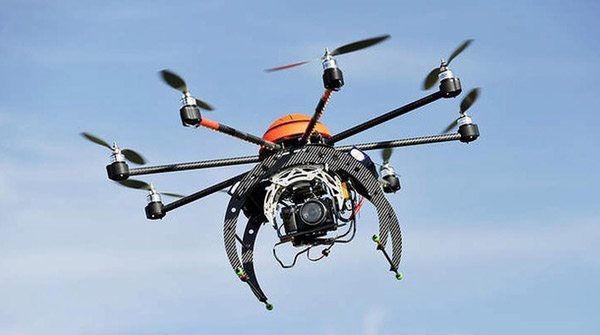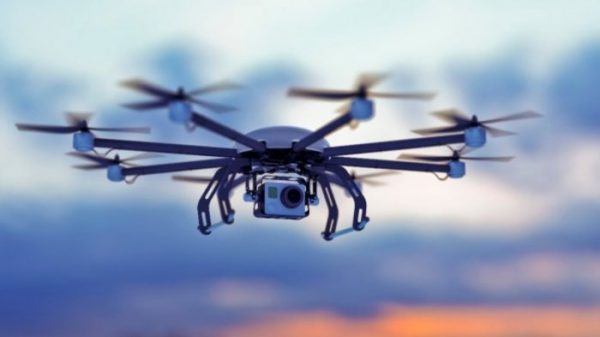The Telecommunications Bill, 2022 directly impacts the enjoyment of the fundamental rights of citizens specifically the freedom of speech and expression, and the government must amend the Bill to balance its objectives and citizens’ rights, the Software Freedom Law Center (SFLC.in) said in its feedback on the draft Bill.
“As they exist presently, the provisions allow surveillance to a degree which can lead to a ‘chilling effect’ on free speech. Furthermore, it allows for dragnet surveillance of persons, violating their right to privacy. Grounding the restrictions of the right within the ambits of the constitution are insufficient for a provision to survive.” — SFLC
The draft telecom bill was released on September 21, 2022, and is open for public comments till the extended date of 20 November. These comments can be sent to naveen.kumar71@gov.in.
Why does this matter: The Telecommunications Bill, 2022, has been criticised for being excessive, privacy-invasive, and a threat to the open and secure internet, among other things. For example, it brings services like WhatsApp and Zoom under the ambit of licensing and registration. The submissions made by various civil society groups sheds more light on the concerns and also list recommendations that the Telecom Regulatory Authority of India (TRAI) may potentially incorporate.
FREE READ of the day by MediaNama: Click here to sign-up for our free-read of the day newsletter delivered daily before 9 AM in your inbox.
What are the major concerns pointed out by SFLC?
- Discretionary powers on when the government can take control of telecom services: Section 24 of the Bill allows the Central or the State Governments, “on the occurrence of any public emergency or in the interest of public safety”, to take possession of the telecom service, network, or infrastructure temporarily or intercept communication. SFLC pointed out that the terms “public emergency” and “public safety” have not been defined by the Bill. “There are no objective benchmarks against which the occurrence of a public emergency, or threats to public safety can be determined. These are largely discretionary declarations, and therefore susceptible to arbitrariness. These factors enable the possibility of a discretionary incursion of fundamental rights, which is not permissible,” SFLC remarked.
- No clarity on what “temporary possession” means: Adding to the above concern, the Bill does not define what “temporary possession” means or entails. “Taking possession of the telecom service, network, or infrastructure can have direct implications on the Article 19(1)(a), and Article 21 rights of the citizens. The Bill does not specify what actions the Central or State Governments can take after taking possession of the telecom service, network, or infrastructure. In the absence of such a procedural safeguard which would ensure that only lawful actions would be taken, the clause could at worst become an enabler of executive excesses,” SLFC submitted.
- The Review Committee is a self-confirming entity: The Bill allows the Indian Telegraph Rules, 1951 to continue to operate, “thereby, Rule 419A will become the provision which dictates the manner in which telegraph services can be intercepted. […] Rule 419A presents certain issues of procedural propriety: The Review Committee under the provision consists of members of the Executive Branch of the Government only, to the exclusion of any other branch of government which can reduce the possibilities of bias, and introduce some form of oversight. This makes the Review Committee a self-confirming entity, which while supposed to be undertaking an adjudicatory role, becomes a ‘rubber stamp’ body,” SLFC submitted.
- No clarity on the grounds under which the government can take complete control of the telecom sector: Section 26 of the Bill “allows the Central Government to take control of all aspects of the telecommunication sector, ‘in the interests of national security, friendly relations with foreign states, or in the event of war’.” The term “national security,” however, is not defined. “The ambiguity of the term runs contrary to the idea of Article 14, since it allows the arbitrary exercise of power by the state which can hamper fundamental rights. This includes rights which form a part of the basic structure, which may not be suspended under any circumstances. […] Furthermore, the provision has been phrased in a manner which makes the list of elements of the telecom sector which it may control in the special circumstances inexhaustive,” SLFC submitted.
- Widespread and indiscriminate verification of users: The Bill covers a wide range of entities that will be required to carry out verification of users, from telecom providers who issue SIM cards to online platforms like Instagram and YouTube. “This widespread collection of personal information related to and every social or non-social activity conducted through telecommunication services will make the citizens susceptible to surveillance by the state as well as private players,” SFLC pointed out, adding that this practice goes against the right to anonymity observed in the Puttaswamy judgements. “As the Bill does not provide the proportionate norms for verification and procedural safeguards, it opens up the way for state and non-state actors to collect as much personal information for verification thereby allowing pervasive profiling of individuals,” SLFC added.
- Verification will not withstand the test of proportionality: Since the verification requirements are a restriction on the right to privacy under Article 21 of the constitution, it must withstand the test of proportionality. “In order to satisfy the proportionality standard the law must demonstrate the legitimate goal the state intends to achieve; how the state will achieve the objective: the measure that will be adopted by the state; the measure so adopted is the least restrictive measure; there is no dragnet collection of information. The Bill as it stands will fail to pass the constitutional muster as none of these principles have been adopted as a legislative mandate,” SFLC submitted.
- Adds to the existing problem of excessive internet shutdowns: The Bill “allows for the suspension of telecommunication services, effectively enabling the cessation of all communications at the discretion of the Government.” While this power already exists under previous laws, SFLC pointed out that: “India has a record number of internet shutdowns issued in a year. These shutdowns are often issued in the backdrop of strong protests and acts of lawful dissent against government policies. The horrifying abuse of this provision has led to a violation of the right to free speech and expression. Furthermore, the procedure under which such suspension orders are issued have been cloaked in ambiguity.”
- Lack of clarity on how spam prevention will be enforced: The Bill prescribes significant fines for spam messaging, but “certain questions still need to be answered for effective implementation. How will the fines be enforced? Will they only be imposed when reported by users? Is there any other oversight mechanism? Will TSP’s/Government be able to access the contents of messages being sent? Answering these questions in the Act will ensure that it is not merely the rule that is strict, but also the enforcement,” SLFC submitted.
- Small players will be subject to harsh penalties: “The broad scope of the definition of Telecommunication Services opens smaller players in the market up to unnecessary regulation, and harsh fines which may make it impossible for them to continue to function,” SLFC submitted. “This is harmful to smaller players in the market that will have to compulsorily get a license in order to keep providing services. The penalty for non-compliance is also steep, at 50 lakhs.”
- Broad definitions cover various internet services: SFLC pointed out that the Bill contains broad definitions for “telecommunication, wireless communication and telecommunication services, […] which reflects an intention of regulating all the activities not only limited to telecommunication carriage infrastructure but every other activity which happens through the mode of telecommunication and internet services.” For example, online video streaming platforms (Netflix, Hotstar), online gaming applications (Among Us, Clash of Clans), audio streaming platforms (Gaana, Spotify), and messaging apps (WhatsApp) will fall under a licensing regime despite there being “semantic, operational and structural difference” between them.
- Affects right to do business: The broad definitions further have an adverse effect on the right to trade guaranteed under Article 19(1)(g), SFLC claimed. “Imposing the same licensing regime, fees and terms and conditions will result in the creation of such entry barriers and operational costs, especially for smaller players, that it would result in an unreasonable restriction of the right to trade and conduct business. The licensing conditions and other operational requirements for a traditional telecommunication service provider, such as Airtel and a small online e-commerce platform cannot be the same,” SLFC explained.
- Civil liabilities are not defined: Section 38 allows the government to prescribe civil liabilities “including the compensation payable by any person causing damage to telecommunication network or telecommunication infrastructure, to the licensee or registered entity, as the case may be, and the applicable penalties.” However, this is problematic because civil liabilities have not been defined in the legislation. “The section amounts to excessive delegation of the power to the executive. The act of delegating the power to the executive to determine the acts which will amount to civil liability, the compensation and penalties, without there being adequate policy guidance within the act amounts to excessive delegation of powers,” SFLC submitted.
Recommendations made by SFLC
- Define “public emergency” and “public safety”, and declare emergency through notification: SFLC recommended that “a public emergency must only be deemed to have occurred if a notification is published by the Government to that effect. Only when such an emergency has occurred, can the subsequent notification be passed which allows the Government to take temporary possession.” Additionally, SLFC recommended that the following definitions be incorporated:
- Public Emergency: “Public emergency would mean the prevailing of a sudden condition or state of affairs affecting the people at large calling for immediate action”;
- Public Safety: “The expression ‘public safety’ means the state or condition of freedom from danger or risk for the people at large”.
- Define “temporary possession”: SLFC recommend that the words “temporary possession” must be defined in the Bill and “must include an exhaustive list of actions which the Government may take when it is in such ‘temporary possession’, and actions which it cannot undertake.” Additionally, “there must be a requirement to log all activities undertaken by the competent authority, which must be made a matter of public record.”
- Define “national security”: “It is recommended that the Bill define circumstances which would qualify as ‘national security.’ The Supreme Court has very recently held that the Government cannot claim the grounds of ‘national security’ without substantiating them with facts justiciable before a Court of law which would lead up to that conclusion,” SFLC submitted.
- Independent committee must sanction government possession requests: “There must be an independent committee with representatives from all three branches of Government which must sanction the Central or the State Government’s ‘request’ to take temporary possession, and such committee must be required to review the necessity of the continued possession periodically (as early as possible). The order of such a committee should be binding on the Central or the State Government concerned,” SFLC recommended.
- Review Committee must include judicial members: “In the interests of ensuring that sufficient considerations are extended to the rights of the person subjected to interception under this provision, it is recommended that the composition of the Review Committee be amended to introduce judicial members to ensure the legality and lawfulness of the order,” SFLC stated.
- Acknowledge the differences between traditional telecom services and OTT: “It is recommended that the legislation should acknowledge the significant differences between traditional telecommunication services, and OTT services. This would necessarily have to be followed by differences in regulatory practices relating to each of these different components of the telecommunication ecosystem,” SLFC recommended.
- Frame laws in line with the Puttaswamy judgement: “It is recommended that the principles of proportionality as propounded in the Puttaswamy Judgment are made a part of the legislation and different standards for verification of users for different telecommunication services are entailed in the legislation,” SFLC submitted.
- Procedure to follow for internet shutdowns: SFLC submitted the following procedural safeguards to be taken into account to ensure that the suspension “of telecom services is a last resort measure, used under tight scrutiny”:
- “The order issued in the interest of public safety or in case of a public emergency must conform to the definitions suggested above”
- “The suspension orders ideally should be issued by a judicial body. The body may be established at both the Central and State level and may consist of judges from the Supreme Court and High Court respectively.”
- “The provision must include a requirement for the orders issued under it to be proportionate measures, issued where no other remedy is available to achieve the same objective which an order under this section seeks to achieve.”
- Recommendation for addressing spam messages:
- Informed consent for marketing or promotional messages: The Bill should require senders to take informed consent and not just consent before sending messages listed under Section 33 of the Bill which covers marketing and promotional messages.
- Incorporate Telecom Commercial Communications Customer Preference Regulations, 2018, into the Bill since it already contains extensive guidelines on commercial communications.
- DND Registry: Provide clarity on who will run the DND registers and how will they be effective in addressing spam given that TRAI has previously observed that these registers are not entirely effective.
- Clarify civil liabilities: “It is recommended that the Bill must identify the acts which may give rise to civil liability and also outline the factors to be considered for ascertaining compensation and penalty,” SFLC submitted.
This post is released under a CC-BY-SA 4.0 license. Please feel free to republish on your site, with attribution and a link. Adaptation and rewriting, though allowed, should be true to the original.
Also Read
- A Complete Guide To The Indian Telecommunication Bill, 2022
- How The Telecom Bill 2022 Undermines The Potential Of Internet: Internet Society’s Report
- AIC Says No To ‘Same Service, Same Rules’ In Comments On The Telecom Bill 2022
- Amend Preamble, Clarify Definitions: IFF’s Comments On The Draft Telecom Bill 2022






























